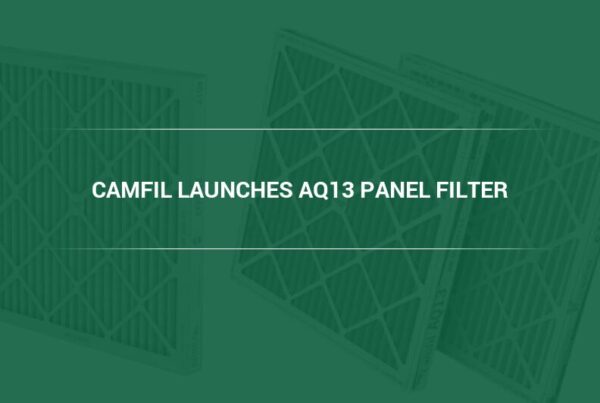Learn about the importance of using home air filters in preventing pet dander from affecting indoor quality in homes and buildings.
Why Home Air Filters Are Necessary for Battling Pet Allergies
Any homeowner with dogs or cats knows how important home air filters are for capturing pet dander—the tiny pieces of dead skin cells shed by animals with fur or feathers. After all, when a dog goes through a period of shedding, it can trigger allergy attacks for those who are sensitive to dander. These allergens are especially problematic for people with breathing problems, bringing about complications such as asthma. The problem with pet dander is that it is usually invisible to the naked eye, making it hard to predict when it will end up in the respiratory tract.
And the problem is more prevalent than one would think. It’s estimated that around 15 percent of Americans are allergic to dogs or cats, while 30 percent of people who have been diagnosed with asthma remain as pet owners anyway. This is consistent with other studies noting how many people who have been advised by their doctors to give up their pets refuse to do so.
Pet Dander One of Many Biological Contaminants that Can Affect Indoor Air Quality
Pet dander, however, is just one of many types of biological contaminants affecting indoor air quality in homes and buildings. Pets also produce allergy-inducing proteins through their sweat, urine, feces, and even saliva. When combined with other common indoor pollutants found indoors, such as pollen, mold, mildew, and dust mites, it can create a toxic indoor air environment that can be worse than most conditions found outdoors.
“Microbiological contaminants include viruses, bacteria, fungal spores, protozoa, algae, animal dander, and animal and insect excreta,” said Camfil USA’s Charlie Seyffer, Manager of Marketing & Technical Materials for commercial air filters and 37-year ASHRAE member and active committee participant. “They often live and reproduce in microclimates, such as damp basements and bathrooms.”
Fungi, mold, and mildew commonly grow on the coils and condensate pans of heat exchangers, as well as the condensate and defrost pans of refrigerators and air conditioning units. If not maintained or cleaned properly, these locations can form a microclimate conducive to biological contaminant growth.
Important Role Played by High Efficiency Air Filtration Systems
Surprisingly, studies also show that around half of people with pet allergies don’t exhibit symptoms of allergic reactions right away. This also explains why high efficiency filtration systems are in such high demand among homeowners, many of whom have family members who, after years of having pets around, suddenly show symptoms of allergic reactions.
Unfortunately, pet dander is perhaps one of the most efficient allergens out there, being very sticky and clinging to many things. And because many people can spend as much as 90 percent of their time indoors, their risk of developing medical complications due to allergy exposure can be very high.
Symptoms of Exposure to Biological Contaminants Prevented by Home Air Filtration Systems
Some of the symptoms associated with allergic reactions to pet dander include sneezing, coughing, runny nose, watery eyes, nausea, and even fever. Among the most susceptible to complications from allergies include children, the elderly, and individuals with pre-existing allergy problems or breathing problems, making home high efficiency air filtration systems all the more important for them.
As a person inhales the microscopic particles in pet dander, the body recognizes them as foreign substances, prompting the immune system to activate a defensive reaction to remove them from the body. What follows is what’s commonly known as an “allergic reaction,” which manifests itself in the inflammation of the airways, activation of the tear ducts, and production of mucus in the nasal cavities.
Going Beyond Home Air Purifiers
While home air purifiers are a tried and proven solution against all kinds of allergens found in almost any home environment, the best solution is still to remove the pollutant at their source. But, if this course of action is not feasible, other ways to mitigate the effect pets have on indoor air quality include:
- Regularly vacuuming carpets, furniture, and upholstery, where pet dander clings, and for best results use vacuum cleaners with HEPA filters
- Using bedding encasements that prevent allergens from penetrating the mattress or foam
- Avoiding the use of furnishings that attract dander or prevent pets from reaching these furnishings like your bedding
- Washing pets and their beddings regularly
- Brushing dogs and cats outside to keep dander out of the house
- Keeping litter boxes clear of the air intakes or air supplies for HVAC units
Choosing Home Air Purification Systems for the Household
When choosing a home air purification systems, it’s important for the air filter to be appropriate for the containment needs and challenges of the house.
Air filters come in four main categories:
- Flat filters
- Pleated panel filters
- Extended media filters including pocket and box filters
- Electronic filters
To address the contaminants generated from pets, a filter with an efficiency rating of MERV 13 or ePM2.5 is an excellent choice for most applications. For highly susceptible individuals air purifiers that include a combination of HEPA filters and odor absorbers are the best option.
Each filter type has its own strengths and ideal applications. To learn more about home air filters for allergy prevention, get in touch with Camfil USA. We specialize in designing air filters for a wide variety of applications, including homes, schools, hospitals, and manufacturing facilities among others. Talk to the Camfil USA or explore our catalog of home air filters to learn more about our product line.
Lynne Laake
Camfil USA Air Filters
T: 888.599.6620
E:Lynne.Laake@camfil.com
F: Friend Camfil USA on Facebook
T: Follow Camfil USA on Twitter



